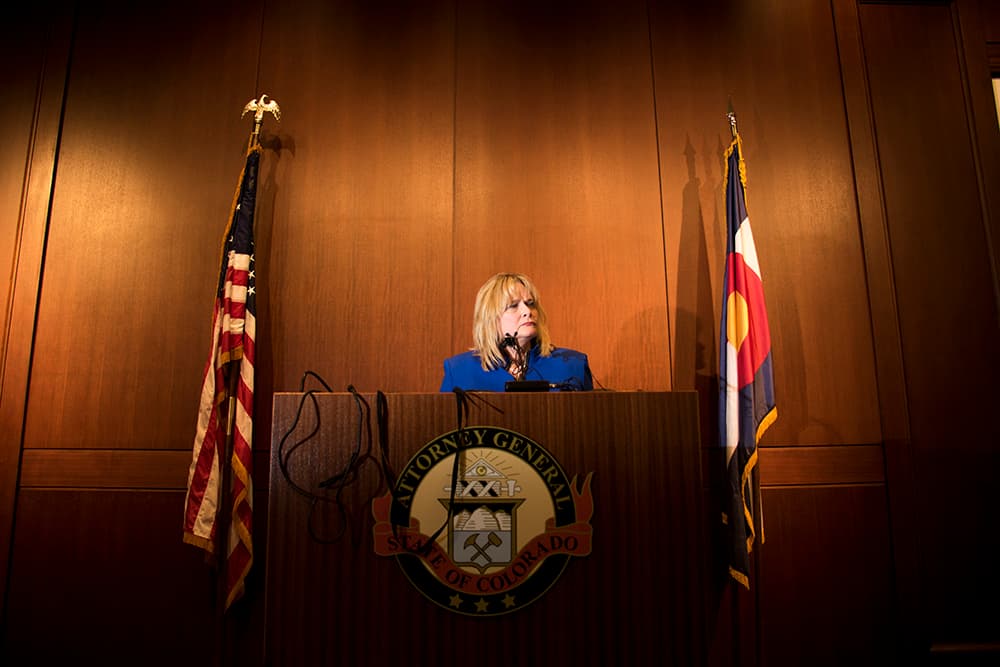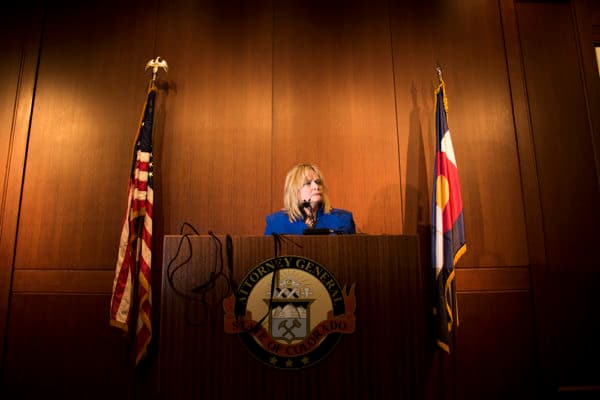
Attorney General Cynthia Coffman has heard the questions before.
They pop up on the campaign trail every so often for Coffman, a Republican gubernatorial candidate. The questions about her “energy” and “the fire in her belly” she’s pretty sure her male competitors don’t ever get asked.
To her, they’re thinly disguised ways of asking her whether she, as a woman, has the durability to be governor. It started after she announced in November.
“I don’t dwell on it, I don’t acknowledge it, and I say, ‘Okay well, some things haven’t changed,'” Coffman said. “The implication is that a woman might not have the stamina to do the job. There’s a little bit of that ... we are the ‘fairer sex, so are we really ready?’ I think it’s laughable, because I think women generally outwork men when they’re campaigning, but not always. We are a driven lot.”
Then there are times when the comments are just plainly sexist, like a quip Democratic candidate for governor Lt. Gov. Donna Lynne said she’s heard.
“You’re not wearing enough lipstick,” Lynne said, breaking out in laughter. “Women get talked to about their appearance a lot more than men do and it’s interesting because it’s so irrelevant when you think about it. Do you want a governor who is intelligent, can make tough decisions — or do you want a governor who wears lipstick or blush or whatever else people feel like they want to say to you?”
Both Coffman and Lynne seem to mostly shrug off those remarks. While the two elected officials are part a governor's race swarming with candidates, there’s a notable difference in this year’s field. Three women candidates — Coffman, Lynne and former state treasurer Cary Kennedy — have viable routes to challenge their male peers in this summer’s primaries.
Coffman, Kennedy and Lynne all said this month — Women’s History Month — that they believe there’s been a change over the past few years that’s allowing not only a higher number of women candidates to finally join the fray, but to have them all facing better chances of winning.
“I think having a woman run for president made a difference,” Coffman said. She said it changed how the general public looks at women in higher office. “I think that a lot of things have come together.”
Kennedy said there are challenges for women stepping into such leadership roles, which she said include balancing career and family demands. Perception plays a role, too. Men are perceived as being better suited for executive office, Kennedy said.
That’s changing in Colorado. Kennedy would know. Kennedy, whose campaign chair is former Lt. Gov. Gail Schoettler, handily won the Democratic preference poll during precinct caucuses earlier this month.
“Colorado is ready for a female governor,” Kennedy said. “Quite frankly, I’m surprised that a forward-looking, innovative state like Colorado hasn’t elected a woman governor. We haven’t had a lot of women run, but as I say, 142 years of statehood is long enough to wait.”
Colorado has not had a major-party female candidate since 1998.
Colorado is the only state among its Four Corners brethren to never have elected a woman governor. In fact, if you took a map out and checked all the states bordering Colorado, you would be picking out states who have all elected at least one female governor. Colorado, as it turns out, is an oasis of all-male governorship.
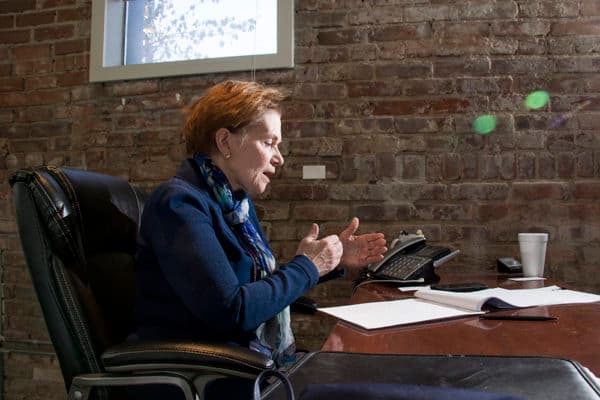
There’s one office the state has fared better with. After all, Lynne is part of a small club. She’s one of five female lieutenant governors in Colorado history, including three since 2003:
- Nancy E. Dick (1979-1987)
- Schoettler (1995-1999)
- Jane E. Norton (2003-2007)
- Barbara O’Brien (2007-2011)
- Lynne (2016 to present)
Additionally, Lynne serves as the state’s Chief Operating Officer and helps oversee the state’s $30 billion-plus budget.
Lynne said women have been close to being nominated, but she’s unsure why they haven’t made it to the state’s top seat.
“I am the fifth woman lieutenant governor, but a woman hasn’t run for governor since 1998,” Lynne said. “So we’ve missed the window in some respects because we haven't had a woman running,”
No one has come closer than Schoettler. Schoettler said people are comfortable with a woman on the ticket, especially as lieutenant governor.
“But when a woman runs for governor, that is where the glass ceiling has come in,” Schoettler said.
Today, Schoettler’s involved in numerous business ventures and political ones, including running a pro-choice PAC called Electing Women that’s raised millions for women running for governor. She’s currently campaign chair for Kennedy, a former intern for Schoettler.
“I think there’s so many forces coming into play,” Schoettler said. “Women will vote for a woman. I think that if Democrats go out and elect in large numbers, we’re going to elect a woman governor.”
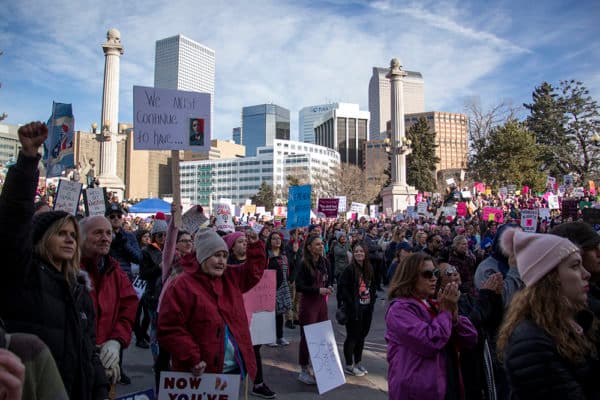
Many of the movements galvanizing women are founded and led by women, Schoettler said. It’s created what she said is “a whole different political environment.” These movements include the Women’s March, Black Lives Matter and #MeToo.
“Look at what happened in Alabama,” Schoettler said, referencing Sen. Doug Jones’ upset victory over Roy Moore, who had faced allegations of sexual assault from young women. “It was African-American women who had been organizing for two years, (they) got people to vote.”
Courtenay Daum, an associate professor of political science at Colorado State University, has been following this year’s race closely. Daum, who is also an affiliated faculty member at CSU’s Center for Women’s Studies and Gender Research, said Colorado has a strong history of electing women to the state legislature. Daum said this makes it seem odd that a woman hasn’t ended up in the governor’s office. But like Kennedy pointed out, there can be other factors in play.
“They perceive that stereotype, a traditional stereotype of what it takes to be an executive leader, having male qualifications, they are individuals who come from the business sectors, (are) independent businessmen,” Daum said. Some people have likely been discouraged from running because they feel this kind of background is mandatory for executive office, Daum added.
If you based a decision solely on the candidate’s executive background, then Lynne would be an attractive pick. Daum said her background as a former executive in the private sector sets her apart from other candidates.
“I think in some ways that position has allowed her to be a viable candidate,” Daum said.
Coffman said she too feels a difference during this year’s election. She said voters are interested in the experience of having a woman in leadership and feel that this is the time.
“I have different theories,” Coffman said. “There’s a real sense that women have decided to step up and run in great numbers.”
When she found out that there have only ever been 39 women governors, she was taken aback.
“Holy cow, I had no idea the number was that low,” Coffman said. “We've got to fix that in Colorado. We are in a state that is open-minded and shouldn’t be in the position to never have had a female governor or senator.”
While Lynne acknowledged the special nature of having so many female candidates, she said she hopes people make decisions based on issues they want addressed and each candidate's experience. Voters most interested in experience might find Lynne the most eligible candidate, considering, as she points out, she’s already doing a job similar to the governor.
“I’m applying for a small promotion to become governor,” Lynne said.
The Trump effect is real, at least among Democrats.
So, about the elephant in the room?
“A lot of women are really disgusted with Donald Trump,” Schoettler said. “(There are) forces outside the party that cut across party lines. … I look around and see the changes, and I think, ‘This is good for women.'”
She cites the sudden uptick in women interested in running for office, with at least 16,000 women asking about running nine months after the 2016 presidential election, according to BuzzFeed.
This year’s election is happening at the intersection of different forces Daum said are leading to more women running.
“With the election of Donald Trump as president, numerous studies have shown that liberal, especially Democratic women, have really been mobilized,” Daum said.
Colorado is an epicenter of sorts for this movement. It’s caught the attention of national organizations like EMILY’s List, which is a pro-choice PAC that supports women running for executive offices through funding. Kennedy has earned the coveted EMILY’s List endorsement, which Daum said she got very early on.
“Female voters in Colorado, especially Democratic women, are really mobilized behind the idea of electing a female governor,” Daum said. “I heard a number of women in my interactions in Fort Collins alone ... they want to see want to see a woman elected.”
This new movement could be tricky for Coffman. Daum said the Democratic Party’s caucus can be a more “hospitable environment” for women, while Republican ones can be more challenging for women because they can be so conservative. And Coffman’s non-conforming stance on issues like abortion and gay rights could further alienate her from her party’s staunchest conservatives.
Lynne, who grew up in the 1960s and 1970s, said she sees the changes groups fought to advance now “going backwards.”
“I felt that we were going backwards and I want to be a strong advocate for everybody,” Lynne said, “people who fought for civil rights and now see their civil rights impugned by this administration in Washington.”
“I think I’m a good balance, I am a mom myself,” Lynne added later. “I have three children. I raised them as a single mother. That’s the most important thing to me in my life, is my children.”
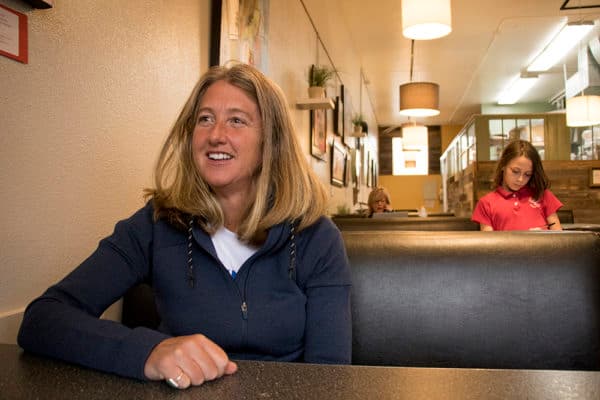
Striking a balance between family and work — a cliché idea that’s almost exclusively reserved for women — is still considered. Kennedy mentioned it as a challenge for women stepping into leadership roles. Yet this year’s race is nothing new for her; it’s her third statewide campaign. She was elected treasurer in 2006, then defeated by Republican Walker Stapleton in 2010. Stapleton is running for governor this year, too.
The people supporting Kennedy's campaign aren’t just supporting her, though. Kennedy said she thinks the people volunteering for her are also supporting other women and are helping them move into top offices.
“It’s just tremendous energy, momentum,” Kennedy said. “I think we have a lot of women in this state who are angry about the way they’re seeing women being treated. They’re frustrated in that, at President Trump for his history, how he has treated women, how he treated women throughout the campaign.”
Female governors are rare across the country.
There are currently only six female governors in the country, according to the Center for American Women and Politics (CAWP) at Rutgers University. CAWP, which tracks the number of women in elected office, currently lists four Republican governors and two Democrats:
- Gov. Kate Brown (D-Oregon)
- Gov. Mary Fallin (R-Oklahoma)
- Gov. Kay Ivey (R-Alabama)
- Gov. Susana Martinez (R-New Mexico)
- Gov. Gina Raimondo (D-Rhode Island)
- Gov. Kim Reynolds (R-Iowa)
The six women governors represent 12 percent of governor’s offices in the United States, a figure Schoettler called "pathetic." The highest number of women governors serving simultaneously is nine, which CAWP said happened in 2004 and 2007. As Coffman pointed out, there have been 39 women governors in the country’s history, representing 28 states (22 Democrats, 17 Republicans).
“We have a very long way to go before we have women in executive positions,” Schoettler said. “Women are not well-represented. We are represented by great women but we are not represented by the number we are.”
CAWP lists 12 current lieutenant governors (including Lynne), two state comptrollers/controllers, seven attorneys general (including Coffman) and 11 secretaries of state. Three current women governors (Fallin, Ivey, Reynolds, all Republicans) served as lieutenant governors prior to serving as governors.
Coffman said she has reached out to other female leaders to discuss their experiences. She’s spoken to Gov. Martinez, former Hawaii Gov. Linda Lingle and U.S. Sen. Catherine Cortez Masto of Nevada. Lynne and Kennedy both said they’ve reached out to other women leaders for guidance.
There's a growing possibility of a Colorado governor’s race featuring only women.
“One thing, because I get asked this from time to time, (is) do I wish that I was the only woman in either party running for governor, wouldn’t that be an adventure?” Coffman said. But she said she enjoys that other women are vying for the same seat. “I think it’s remarkable. I think it’s exciting. I think that we probably play off each other’s energy and to me it doesn’t feel like a competition, it feels like a sisterhood.”
Kennedy also said she sees an exciting opportunity for both parties to nominate a woman. It could have far-reaching effects.
“What excites me the most is the opportunity to inspire young women and young girls in the state to be leaders in their own lives, and that doesn’t necessarily mean running for offices, (but) being leaders in their families, in their schools ... always knowing that their voice matters,” Kennedy said.

